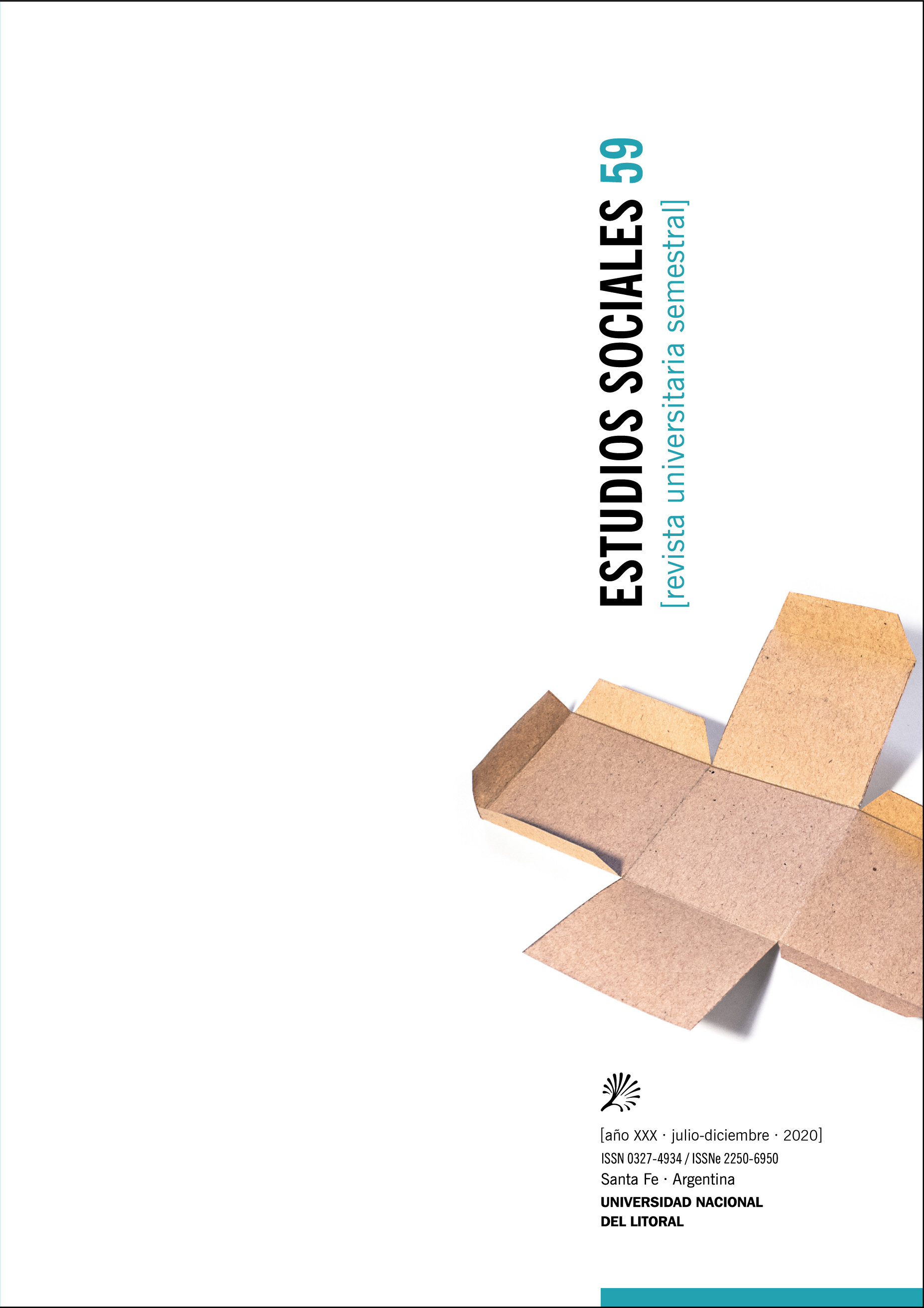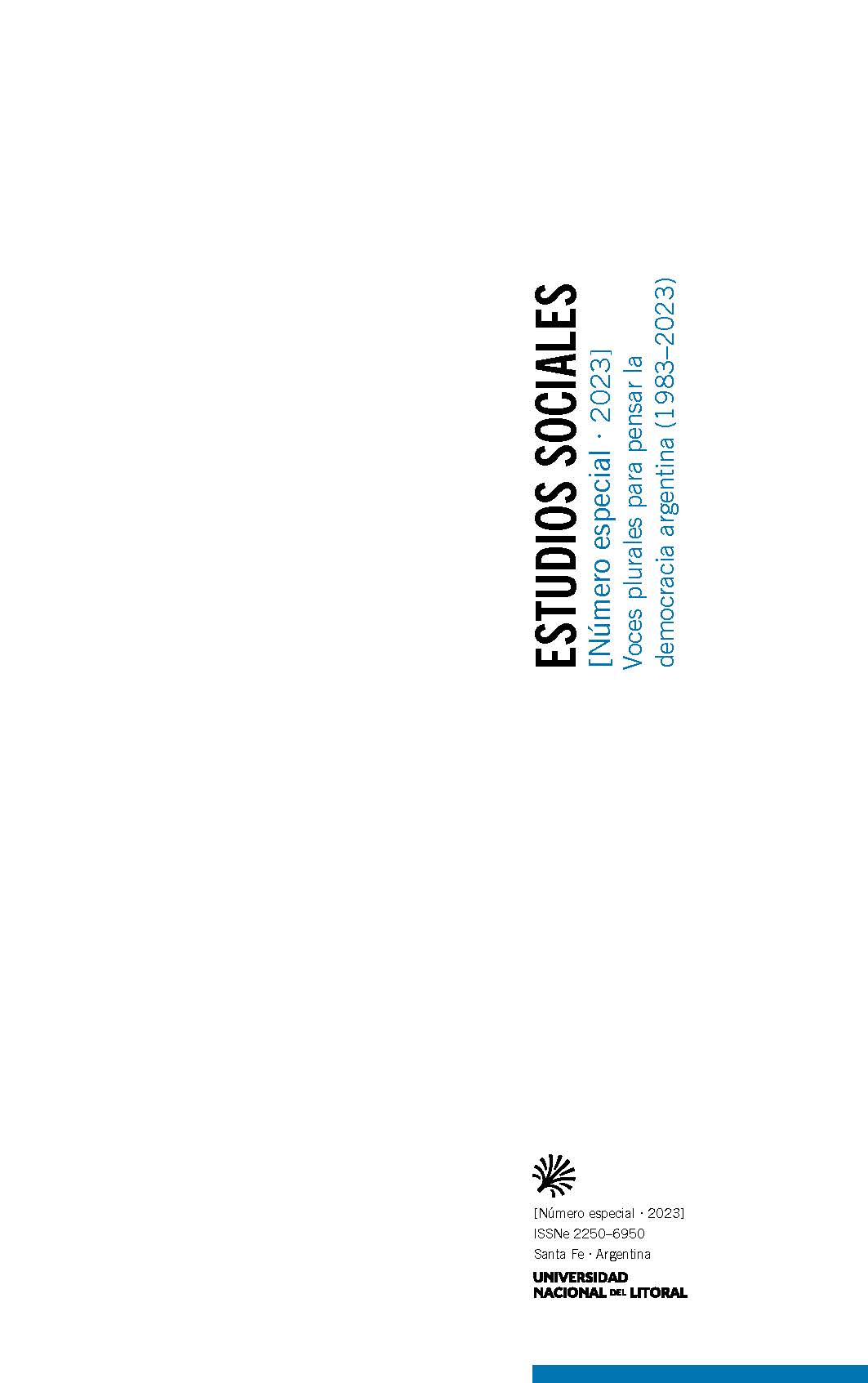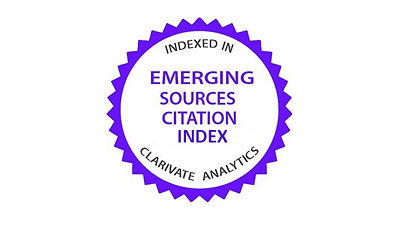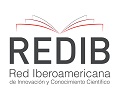Visiones eurocéntricas y tercermundistas de la historia del derecho internacional
La crisis del paradgima estado-céntrico
DOI:
https://doi.org/10.14409/es.v59i2.8870Palabras clave:
Historia del Derecho internacional, gisro histórico, eurocentrismo, TWAIL, AnghieResumen
Este artículo explora las consecuencias que el Giro a la Historia está teniendo hoy en la crisis y el replanteamiento del actual paradigma europeo y Estado-céntrico del Derecho Internacional. Con tal fin presenta una definición doble del Giro Histórico y estudia las historias eurocéntricas y tercermundistas del Derecho Internacional moderno/colonial.
Citas
ANGHIE, ANTONY (1996): «Francisco de Vitoria and the colonial origins of international law», en: Social & Legal Studies, vol. 5.3, pp. 321-336.
ANGHIE, ANTONY (2007): Imperialism, sovereignty and the making of international law, Cambridge, CUP.
ANGHIE, ANTONY (2016): «La evolución del derecho internacional: Realidades coloniales y poscoloniales», en: Anghie, Antony, Koskenniemi, Martti y Orford, Anne, Imperialismo y derecho internacional, Bogotá, Siglo del Hombre Editores/ Uniandes /Universidad Javeriana, pp. 95-126.
BARRETO, JOSÉ MANUEL (2012): «Imperialism and decolonisation as scenarios of human rights history», en: Barreto, José Manuel (ed.), Human rights from a Third World perspective: Critique, History and International Law, Newcastle, Cambridge Scholars Publishing, pp. 140-171.
BARRETO, JOSÉ MANUEL (2015): «Six books: International law, human rights and the politics of the turn to history», en: Critical Legal Thinking. Law & the Political, Disponible en:
http://criticallegalthinking.com/2015/03/27/six-books-international-law-human-rights-politics-turn-history/ (último ingreso: 27/01/2020).
BARRETO, JOSÉ MANUEL (2017): «Cerberus: Rethinking Grotius and the Westphalian system», en: Koskenniemi, Martti, Rech, Walter, Jiménez, Manuel (eds.). International law and empire. Historical explorations, Oxford, OUP, pp. 149-175.
BELLO, ANDRÉS (1844): Principios del derecho internacional, Valparaíso, Imprenta del Mercurio.
CASANOVAS, ORIOL y RODRIGO, ANGEL (2015): Compendio de derecho internacional público, Madrid, Tecnos.
CASSESE, ANTONIO (2005): International law, Oxford, OUP.
CRAVEN, MATHEW (2007): «Introduction: International law and its histories», en: Craven, Mathew, et.al. (eds.). Time, history and international law, Leiden y Boston, Martinus Nijhoff, pp. 1-25.
CRAWFORD, JAMES (ed.) ([1966], 2008): Brownlie´s principles of public international law, Oxford, OUP.
DIEZ, MANUEL (2002): Instituciones de derecho internacional público, Madrid, Tecnos.
FEMIA, JOSEPH (1981), «An historicist critique of ‹revisionist› methods for studying the history of ideas», en: History and Theory, vol. 20, nº 2, pp. 113-134.
GADAMER, H.G. (2015), Truth and method, Londres, Bloomsbury.
GALINDO, GEORGE (2005): «Martti Koskenniemi and the historiographical turn in international law», en: The European Journal of International Law, vol. 16, pp. 539-559.
GAVIRIA LIEVANO, ENRIQUE (1998, 2005): Derecho internacional público, Bogotá, Temis.
GREWE, WILHELM (1984, 2000): The epochs of international law, Berlín-Nueva York, De Gruyter.
HEGEL, GEORG W.F. (1956): The philosophy of history, Dover, Mineola.
HUNTER, IAN (2010), «Global Justice and Regional Metaphysics: On the Critical History of the Law of Nature and Nations», en: Dorsett, Shaunnagh and Hunter, Ian. (eds.), Law and Politics in British Colonial Thought: Transpositions of Empire, New York, Palgrave Macmillan.
KLABBERS, JAN (2017): International law, Cambridge, CUP.
KOSKENNIEMI, MARTTI (1989): From apology to utopia: The structure of international legal argument, Cambridge, CUP.
KOSKENNIEMI, MARTTI (2005, 2015): El Discreto civilizador de las naciones. El auge y la caída del Derecho internacional 1870-1960, Buenos Aires, Ciudad Argentina/Universidad Complutense.
KOSKENNIEMI, MARTTI (2011): «Histories of International Law: Dealing with Eurocentrism», en: Rechts Geschichte, vol. 19, pp. 152-177.
KOSKENNIEMI, MARTTI (2012): «A history of international law histories», en: Fassbender, Bardo y Peters, Anne, Oxford handbook of the history of international law, Oxford, OUP, pp. 943-971.
KOSKENNIEMI, Martti (2014): «Vitoria and us. Thoughts on critical histories of international law», en: Rechtsgeschichte, vol. 22, pp. 119-138.
KOSKENNIEMI, MARTTI (2016): «Imperio y derecho internacional: La verdadera contribución española», en: Antony Anghie, Martti Koskenniemi y Anne Orford (eds.). Imperialismo y derecho internacional, Bogotá, Siglo del Hombre Editores-Uniandes-Universidad Javeriana, pp. 127-189.
KOSKENNIEMI, MARTTI, RECH, WALTER, y JIMENEZ, MANUEL, (eds.) (2016): International Law and Empire. Historical Explorations, Oxford, OUP.
LESAFFER, RANDALL, (ed.) (2004): Peace treaties and international law in European history. From the Late Middle Ages to World War One, Cambridge, CUP.
LESAFFER, RANDALL (1999): «La dimensión internacional de los tratados de Paz de Westfalia: Un enfoque jurídico», en: Villaverde, Fernando (ed.). 350 años de la Paz de Westfalia: Del antagonismo a la integración en Europa, Madrid, Biblioteca Nacional-Fundación Carlos de Amberes, pp. 33-52.
LESAFFER, RANDALL (2007): «International law and its history: The story of an unrequited love», en: Craven, Mathew et.al. (eds.). Time, History and International Law, Leiden y Boston, Martinus Nijhoff, pp. 27-41.
MARIN, JOACHÍN (1776, 2015): Historia del derecho natural y de gentes, Madrid, Universidad Carlos III.
MONROY CABRA, MARCO GERARDO (2018): Derecho internacional público, Bogotá, Temis.
NEFF, STEPHEN (2014): «A short history of international law», en: Evans, Malcolm (ed.). International Law, Oxford, OUP, pp. 3-27
NUSSBAUM, ARTHUR (1954): A concise history of the law of nations, Nueva York, Macmillan.
NYS, ERNEST (1894) : Les Origins du Droit International, Bruselas y París, Castaigne-Thorin.
OPPENHEIM, LASSA (1908): «The science of international law: Its task and method», en: American Journal of International Law, vol. 2, pp. 313-356.
ORFORD, ANNE (2012): «The past as law or history? The relevance of imperialism for modern international law», en: IILJ Working Paper, 2012/2 (History and Theory of International Law Series).
ROXBURGH, RONALD, ed. (1920): International Law. A Treatise by L Oppenheim, Londres & Nueva York, Longmans.
SCHMITT, CARL (1950, s.f.): El Nomos de la Tierra, Buenos Aires, Struhart.
SHAW, MALCOLM (2008), International Law, Cambridge, CUP.
SKINNER, QUENTIN (1969): «Meaning and understanding in the history of ideas», en: History and Theory, vol. 8, pp. 3-53.
SMITH, ADAM (1767): The theory of moral sentiments, Edinburgo, Millar, Kinkaid & Bell.
TRUYOL, ANTONIO (1974, 1993): La sociedad Internacional, Madrid, Alianza Universidad.
VERZIJL, JAN H.W (1968): International law in historical perspective, Leiden, Sijthoff.
WARD, ROBERT (1795): An enquiry into the foundation and history of the law of nations in Europe, from the time of the Greeks and Romans, to the age of Grotius, Dublín, P. Wogan et.al.
Descargas
Publicado
Cómo citar
Número
Sección
Licencia
Los artículos publicados en Estudios Sociales. Revista Universitaria Semestral se encuentran disponibles gratuitamente en la Biblioteca Virtual de Publicaciones Periódicas de la Universidad Nacional del Litoral: http://bibliotecavirtual.unl.edu.ar/publicaciones.
El contenido está bajo Licencia Creative Commons Atribución-NoComercial-Compartir Igual 4.0 Internacional (BY-NC-SA): no se permite un uso comercial de la obra original ni de las posibles obras derivadas, la distribución de las cuales se debe hacer con una licencia igual a la que regula la obra original.
 Los artículos que sean aceptados, deberán ser acompañados del documento "Autorización para Publicar" que contiene la firma de los autores, en donde se acepta la originalidad del documento y autorizan a la Revista a la publicación del mismo. Las opiniones vertidas por los autores en sus artículos no reflejan necesariamente el parecer de Estudios Sociales. Revista Universitaria Semestral. El contenido de cada trabajo es responsabilidad exclusiva de su autor. En caso de que se utilicen trabajos, datos y/o palabras de otros autores, éstos tienen que ser debidamente citados. Cualquier contenido que sea detectado como fraudulento será elevado al Consejo Editorial de la revista para su revisión, quienes evaluarán el caso y determinarán los pasos a seguir.
Los artículos que sean aceptados, deberán ser acompañados del documento "Autorización para Publicar" que contiene la firma de los autores, en donde se acepta la originalidad del documento y autorizan a la Revista a la publicación del mismo. Las opiniones vertidas por los autores en sus artículos no reflejan necesariamente el parecer de Estudios Sociales. Revista Universitaria Semestral. El contenido de cada trabajo es responsabilidad exclusiva de su autor. En caso de que se utilicen trabajos, datos y/o palabras de otros autores, éstos tienen que ser debidamente citados. Cualquier contenido que sea detectado como fraudulento será elevado al Consejo Editorial de la revista para su revisión, quienes evaluarán el caso y determinarán los pasos a seguir.
Estudios Sociales. Revista Universitaria Semestral adhiere al Código de Conducta y Guía de Buenas Prácticas para editores científicos del Comité de Ética de Publicaciones (COPE):http://publicationethics.org/
















